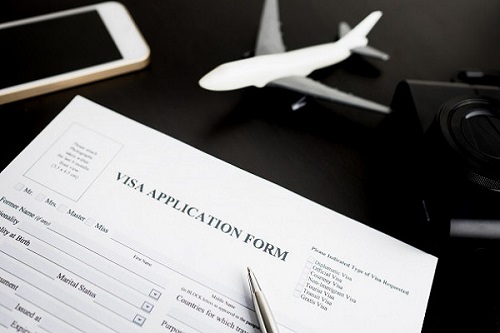Table of Contents
As the largest economy in Europe and 5th largest in the world, Germany offers plenty of work opportunities to candidates with specialized skills. There is a shortage of professionals like physicians, nursing professionals, IT specialists, engineers, scientists, and also craftsmen in Germany. And the coronavirus pandemic has made the situation worse. However, there are plenty of jobs in Germany for international students.
Conversely, these students are highly-educated professionals willing to move and explore their careers in Germany. The question that remains is how to apply for and get a job in Germany. Let’s find out.
How important is it to know German to get a job in the country?
Job hunting in Germany for international students can be challenging if you speak only English. If you don’t speak German, you are restricted to lower-paid informal and casual work.
However, if you are well-qualified with a vocational qualification or a degree, have decent work experience, and speak at least some German, you stand a better chance of landing a job in Germany.
How to get a job in Germany?

It is easy to land jobs in Germany if you know already know where to start. So let’s get started!
Calculate your chances of getting a job in Germany, ways to find a suitable job, and the kind of visa you would need to start working in Germany in the points below.
1. Check your chances of making it in Germany
The ‘Make it in Germany’ website is the official website for qualified professionals worldwide wanting to work in Germany. You can Quick Check your possibilities of working in Germany on the website.
There is a demand for nursing staff, engineers, doctors, IT specialists, mechatronic technicians, etc. in Germany. Also, before you start searching for a job, it is best to first figure out your visa requirements to work in Germany.
2. See if your qualifications are recognized by Germany
To land a job in Germany, Germany has to recognize your educational or vocational qualifications. You can check your qualification’s ‘Recognition in Germany’ on the ‘Make it in Germany’ website.
To take up a job in Germany, you have to prove that your qualifications are recognized or considered equivalent to German qualifications. Moreover, you will require a professional license if you want to work in one of the regulated professions in Germany.
3. Search for a job
Before you apply for a visa to go work in Germany, you need to have a job offer letter from a company based in Germany. The ‘Make it in Germany’ website has job listings of jobs in Germany and details of vacancies available for international specialists.
You can carry out your job search on the Federal Employment Agency website as well. Look for job opportunities in Germany on websites like Indeed, Stepstone, and Monster. In addition, search for jobs on business networks like Xing and LinkedIn. You can also search for vacancies directly in specific companies.
4. Make and send an application
Prepare your application documents, including a resume, cover letter, and references. Ensure that your resume is excellent and write your cover letter as per the company and the job you are applying for.
Companies in Germany focus on your cover letter apart from your educational background before offering you a job. Make sure you have the needed qualifications and emphasize them in your cover letter before applying for a job in Germany.
Obtain a residence permit or apply for a visa
If you are already a student studying in Germany, you can apply for a residence permit to find a job. If you are from outside Germany and want to move to the country for work, you can apply for one of the following three types of visas:
- EU Blue Card
- Work visa for qualified professionals
- Job seeker visa
Learn about all the above-mentioned different ways to stay and work in Germany in detail in this article.
5. Get health insurance
It is mandatory to get health insurance in Germany from the first day of your stay. So, make sure you get it well in advance of applying for a job.
Is it easy for international students to get a job in Germany?

If you are a student in Germany on a student visa, you can work part-time jobs while studying.
In case you intend to work in Germany after you graduate, you must start working on that as soon as you start studying in a German University. Working in Germany is easier if you have studied in the country. It is much easier for you to obtain a residence permit that comes with the right to enlist in the German employment market.
In case you haven’t found a job in Germany during your studies, you can apply for a residence permit. Submit it to a responsible immigration authority after the completion of your studies. Your permit will be valid for up to 18 months, during which you can find a job in Germany.
To become eligible for the permit, you have to submit proof of your sincerity in seeking employment as per your level of academic qualification and that you can cover your cost of living.
When seeking a permanent position, you can work part-time jobs in Germany for as many hours as you want per week. If you are successful in landing a job within the stipulated time, you may continue to stay in Germany.
To obtain a residence permit, you will need:
- Passport
- Proof of finances
- Health insurance
- Proof of completion of studies from your college/university
- German language proficiency of B1 level as per CEFR, which is preferred
What permits do I need to get for a job in Germany?
Indian citizens require a visa to live and work in Germany. You must only apply for a visa when you already have an employment contract letter to work in Germany.
You have three different options to start your professional life in Germany. Let’s look at the three types of visas:
EU Blue Card
The EU Blue Card is a special residence permit for skilled foreign academics looking for employment in Germany. Here are the requirements-
- Recognized foreign higher education degree, a German degree, or a foreign higher education degree comparable to a German degree.
- Concrete job offer from a German company.
- The position must be appropriate to your qualifications.
- Your position in Germany must be remunerated with an annual income of at least EUR 56,800. If your field is mathematics, natural sciences, IT, engineering, or medicine, an annual salary of at least EUR 44,304 is required.
After 33 months of residence on an EU Blue Card, you can apply for a settlement permit. You may get a settlement permit after just 21 months if you can prove your B2 level German language skills.
In case you do not meet the EU Blue Card requirements, you can also apply for a work visa for qualified professionals, which we will discuss next.
Work visa for qualified professionals
If you have received qualified vocational training or have taken a higher education course outside of Germany, you can get a residence permit and land a job in Germany as a qualified professional through a work visa. The requirements for the visa are as follows:
- Your qualifications must either be recognized in Germany or be comparable to a German higher education institution.
- If you are looking for a job in a regulated profession like in health, you also require a professional practice permit.
- As soon as you receive the job offer from Germany, you can contact the German embassy in India and they will guide you through the process.
Job seeker visa

It is difficult to search for a job in Germany while sitting in India. In such a situation, if you want to enter Germany and seek employment in the country, you can apply for a residence permit with a German job seeker visa.
If you have a recognized higher education qualification, you can get a six-month German job seeker visa to look for a job in the country. Here are the requirements:
- Provide proof of your academic or vocational training.
- Your qualifications must be recognized in Germany or must be equivalent to a German diploma or degree.
- If you are looking for a job in a regulated profession, a professional practice permit is mandatory.
- If you have completed your vocational training, you must submit proof of the required German language skills.
- You must prove that you can cover your living costs sufficiently as you won’t be able to enter into any remunerated employment during this time.
If you find a job in line with your qualifications, you can apply for a residence permit for qualified professionals or an EU Blue Card directly in Germany. Note that you can’t start working unless you get a work visa.
Bottom line
All this may sound like a lot of work, but it is easy to get jobs in Germany for Indians. There are many job opportunities in Germany with employers looking for well-qualified and motivated employees from foreign countries.
Fine-tune your job applications, excel at interviews, improve your German skills, and present yourself well, and a job in Germany will be easy to find.
Read more: 5 Ways to Boost Employment Success for International Students






